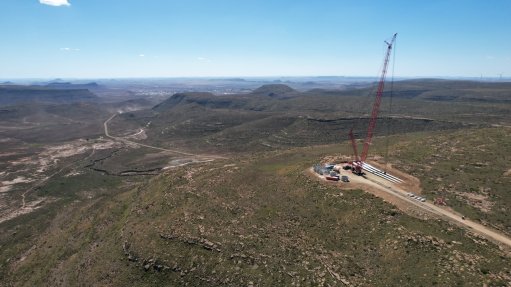Research group forecasts switch to green long-haul aviation will significantly increase costs
US-based research and advisory group Lux Research senior director Christopher Robinson has warned that the switch away from fossil-based aviation fuels to environmentally sustainable alternatives could significantly increase the cost of flying, particularly for long-haul flights. He did so in a recent blog post.
He reported that the decarbonisation of aviation was one of the topics that the company’s clients raised most with Lux, last year. Currently, total yearly aviation carbon emissions came to just under 1 Gt. And commercial aviation was forecast to grow strongly in the coming years.
There were, he pointed out, three options to decarbonise aviation. These were electricity, hydrogen and sustainable aviation fuels (SAF).
Electric propulsion involved batteries being used to power electric motors, as was the case with electric cars. This reduced costs, as electricity cost less than other fuels. But it also reduced range, a lot, because of battery energy density issues. Speed was also capped, owing to the incompatibility of electric power with jet propulsion.
Hydrogen could be used in two ways: either in a fuel cell, or as a combustible fuel. Robinson opined that the latter was the more likely application, as it could be used with jet engines. But the energy density of liquid hydrogen was only 25% of that of conventional jet fuel, so either airliner range would be reduced or the aircraft would have to be fitted with additional fuel tanks. (He did not discuss fuel cell-powered propulsion systems for aircraft.)
Then there was SAF. “These are liquid hydrocarbon fuels produced from biogenic or waste feedstocks, which mimic the composition of existing jet fuel to enable the use of existing infrastructure and aircraft,” he explained. Currently, SAF was blended with conventional jet fuel for commercial flights, but aircraft could use 100% SAF. Given that SAF required very little in the way of modification to aircraft and airport infrastructure, and that SAF could power long-haul flights, this made this the “most promising opportunity” to decarbonise aviation.
However, the currently used SAF feedstocks were not available in enough quantities to allow the use of these fuels at scale. Other ways of producing SAF – he cited the Fischer-Tropsch process, as an example – were significantly more expensive than jet fuel. He observed that, using the “promising” methanol-to-jet technology for SAF production, and assuming cheap hydrogen ($2/kg) and cheap non-fossil carbon dioxide ($100/t) the resulting SAF would still be 100% more expensive than jet fuel currently was. These costs would be passed on to consumers.
“Business will likely push more interactions to virtual environments, a prospect seemingly more likely after Apple’s recently launched Vision Pro, while families reconsider their holiday destinations – or at least how to get there,” he predicted.
Comments
Press Office
Announcements
What's On
Subscribe to improve your user experience...
Option 1 (equivalent of R125 a month):
Receive a weekly copy of Creamer Media's Engineering News & Mining Weekly magazine
(print copy for those in South Africa and e-magazine for those outside of South Africa)
Receive daily email newsletters
Access to full search results
Access archive of magazine back copies
Access to Projects in Progress
Access to ONE Research Report of your choice in PDF format
Option 2 (equivalent of R375 a month):
All benefits from Option 1
PLUS
Access to Creamer Media's Research Channel Africa for ALL Research Reports, in PDF format, on various industrial and mining sectors
including Electricity; Water; Energy Transition; Hydrogen; Roads, Rail and Ports; Coal; Gold; Platinum; Battery Metals; etc.
Already a subscriber?
Forgotten your password?
Receive weekly copy of Creamer Media's Engineering News & Mining Weekly magazine (print copy for those in South Africa and e-magazine for those outside of South Africa)
➕
Recieve daily email newsletters
➕
Access to full search results
➕
Access archive of magazine back copies
➕
Access to Projects in Progress
➕
Access to ONE Research Report of your choice in PDF format
RESEARCH CHANNEL AFRICA
R4500 (equivalent of R375 a month)
SUBSCRIBEAll benefits from Option 1
➕
Access to Creamer Media's Research Channel Africa for ALL Research Reports on various industrial and mining sectors, in PDF format, including on:
Electricity
➕
Water
➕
Energy Transition
➕
Hydrogen
➕
Roads, Rail and Ports
➕
Coal
➕
Gold
➕
Platinum
➕
Battery Metals
➕
etc.
Receive all benefits from Option 1 or Option 2 delivered to numerous people at your company
➕
Multiple User names and Passwords for simultaneous log-ins
➕
Intranet integration access to all in your organisation

















